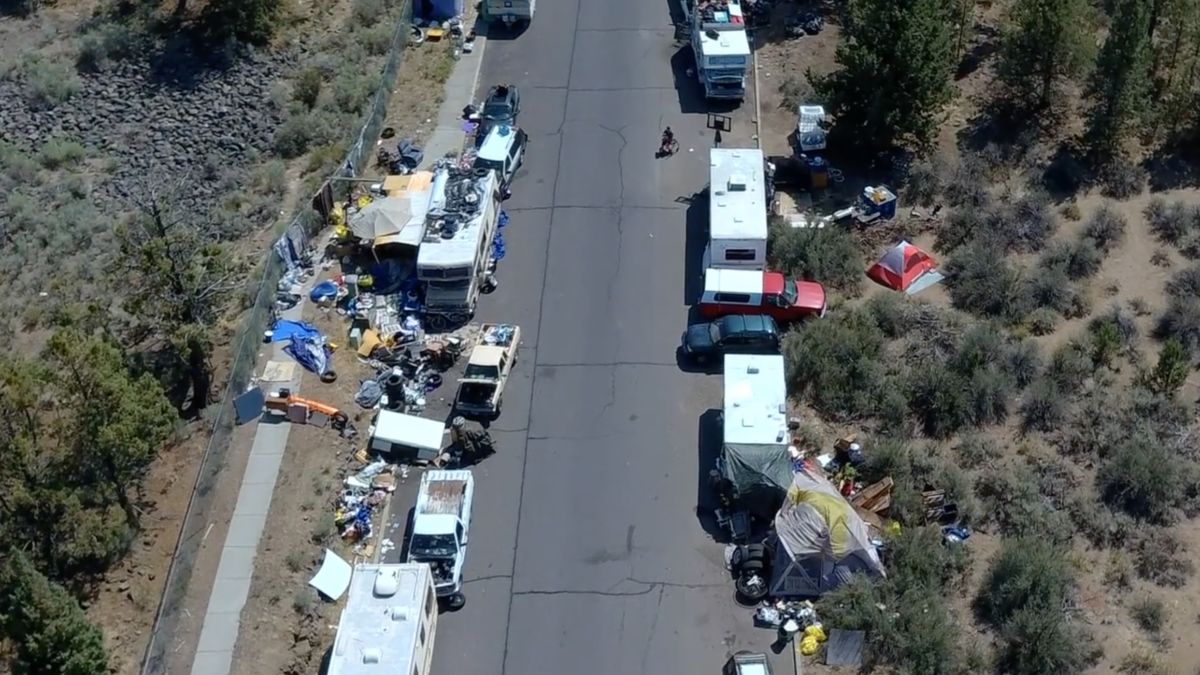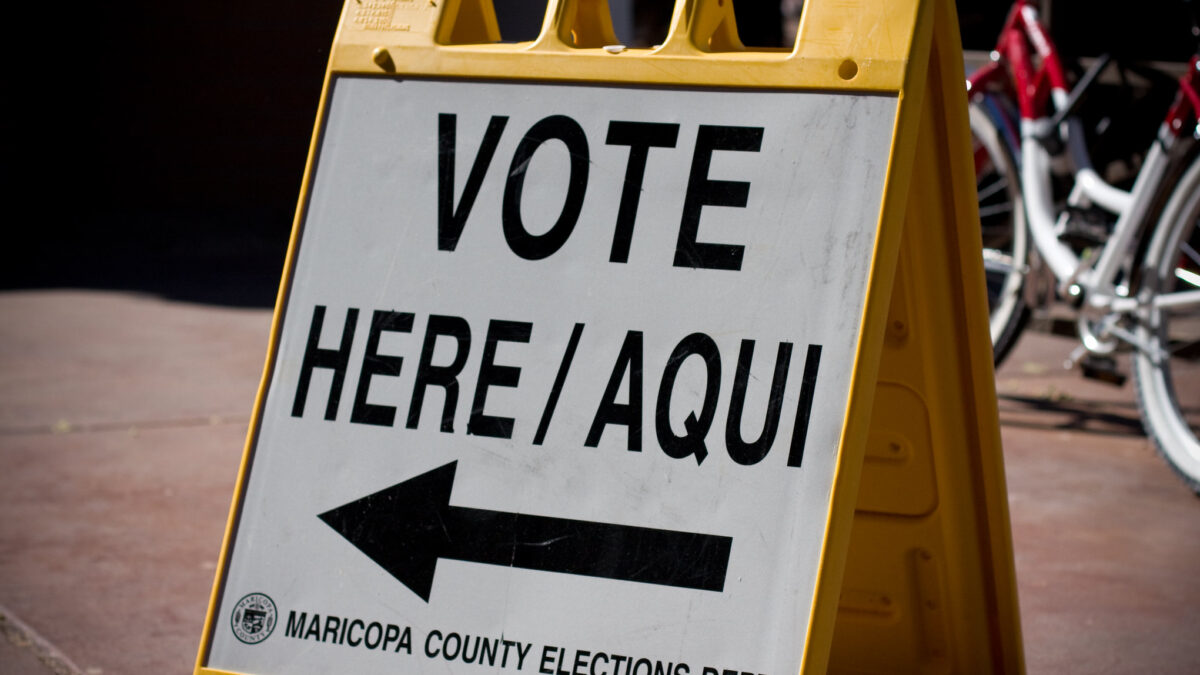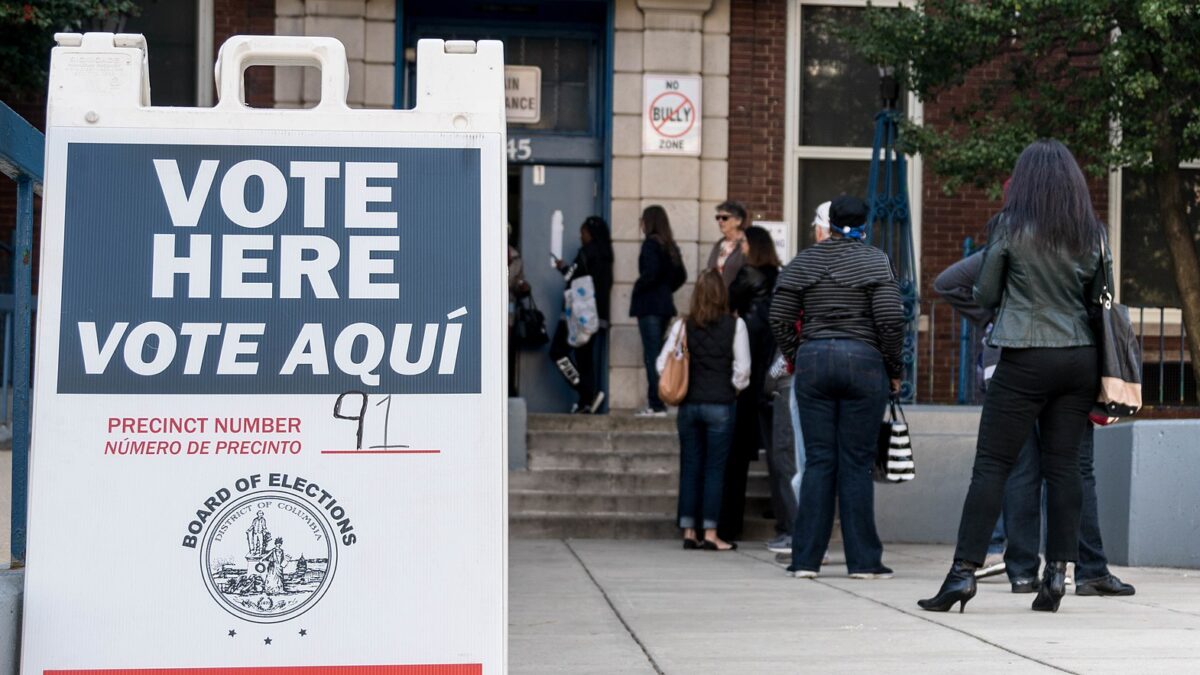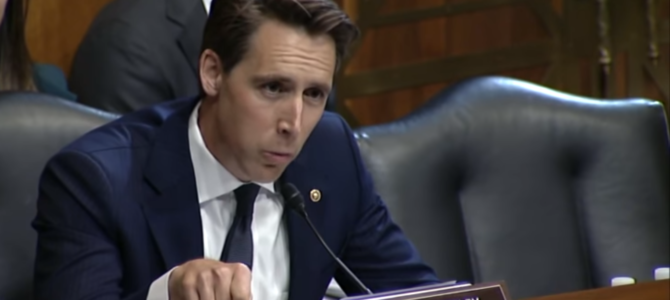Just outside Bend, Oregon, on Highway 97 lies the Juniper Ridge homeless encampment, also known by some locals as “Dirtworld.” It’s so popular among the homeless that it has its own Google business page.
As you approach the encampment, endless campers become visible over the top of rock walls, scattered through the forest. A burnt-out vehicle lies on its side near a camper and debris including several porta-potties, a dumpster, and a supply of drinking water. Dirt roads connect makeshift camps. Vehicles sit in a circle, a makeshift fortress surrounded by a wall of tarp. Broken glass, garbage, and spray-painted signs mark the ground.
A man died there last year after a dog attack, according to The Bulletin, and a nearby horse boarding business shut down because it became too dangerous for customers to ride, KTVZ reported.
“The crimes reported in these encampments cover the full range and include assaults, weapons offenses, sexual assaults, arsons, and homicide,” Deschutes County District Attorney Steve Gunnels said.
Thanks to radical Democrat housing and drug policies, rural Oregon has been battling homelessness and the resulting crime for years. But with pending reforms and an upcoming Supreme Court ruling this June, some local leaders see light at the end of the dirty encampment tunnel.
Anticipating Change
Deschutes County, Oregon’s fastest-growing for its tourism and outdoor recreation, has struggled with homelessness for years, according to Gunnels. The county is located in rural, conservative Central Oregon, which has seen homelessness increasing steadily since 2015.
Gunnels, however, said he hopes the homeless crisis will improve with two developments: the Supreme Court’s expected ruling in Grants Pass v. Johnson, which could overrule a previous decision protecting the “unavoidable consequences” of homelessness, and the reform of Measure 110, which gave Oregon the nation’s most permissive drug laws in 2020.
Communities across America have seen surging rates of homelessness, with a 12 percent overall increase from 2022 to 2023, according to the Department of Housing and Urban Development. In Oregon, the number increased 16 percent from 2022 to 2023, and in Central Oregon, it increased 28 percent.
This is despite President Joe Biden’s ambitious goal announced in 2022 to reduce homelessness 25 percent by 2025. Biden’s strategy includes the unproven (and often failed) “housing first” policy, which aims to “prevent people from becoming homeless, address inequities that disproportionately impact underserved communities, including people of color and other marginalized groups, and help cities and states reduce unsheltered homelessness.”
The Cause
Gunnels said Central Oregon’s struggle with homelessness developed with a trend in the American West since 2018, when the 9th Circuit Court of Appeals ruled in Martin v. Boise that the state cannot criminalize “unavoidable consequences of being homeless” like “sitting, lying, or sleeping on streets.”
“Martin v. Boise has significantly limited local government’s ability to manage public ‘camping,’ leading to the establishment of homeless encampments that have become very unhealthy, dangerous places to live or to encounter,” Gunnels said in an email.
Gunnels said Measure 110, which removed penalties for the possession of small amounts of illicit drugs such as cocaine, methamphetamine, heroin, and fentanyl, has also largely contributed to the region’s homeless crisis.
“Measure 110 has contributed to rampant drug use and associated crime, including assaults, weapons offenses, sexual assaults, arson and homicide in homeless encampments in Oregon,” Gunnels said. “Case law limiting the authority of local jurisdictions to effectively address and move homeless encampments has further exacerbated these problems.”
The Crisis
Central Oregon has seen homelessness increase from 594 homeless people in 2015 to 1,799 homeless people in 2024, according to the nonprofit Homeless Leadership Coalition. Most homeless people have lived in the rapidly growing area for over 10 years.
The area has a number of homeless encampments, including two large ones near Bend, the most populous and liberal city east of the cascades, and another in the smaller, more conservative city of Redmond.
Outside of Bend are the China Hat Road encampment and the aforementioned Juniper Ridge encampment. According to Jacob Larsen, the City of Bend public information officer, the camps lie outside city limits, so they fall under the jurisdiction of agencies such as Deschutes County and the U.S. Forest Service.
At the China Hat Road encampment, violent crime has plagued nearby residents for years, according to KTVZ, driving some to leave the state. Police arrested a man last year in the camp for fentanyl trafficking, according to KBND.
Meth and fentanyl are common in the camps, Gunnels said, with meth causing violence and fentanyl causing overdoses.
Outside Redmond lies an encampment off Antler Ave., just north of the regional airport. Tents and debris were so close to the runways that the Federal Aviation Administration ordered the city last year to clear the land and erect fences for safety.
The Antler Ave. encampment, known as “Dirt World Two,” has its own Facebook page. The administrator of the page warned residents in February of nearby police: “Cops are on Antler.”
Fire Marshal Tom Mooney, with Redmond Fire and Rescue, sent a list of emergency responses to homeless areas of the fire district in 2023. The department responded to 44 injuries, including emergency medical calls and vehicle accidents with injuries, and 33 fires last year.
“These are very dangerous places for the people who live there and for law enforcement to enter,” Gunnels said. “Law enforcement typically goes in en masse with at least multiple officers or deputies for safety.”
Deschutes County Sheriff’s Office Sgt. Jason Wall said in an email that people have been living in these areas for a while, but the population in encampments has increased noticeably in the last five years. The sheriff’s office began using its school resource deputies to patrol encampments in the summer, according to Wall.
“We receive all types of calls for service,” Wall said. “From animal complaints to felonious assaults, and everything in between.”
Hope for Improvement
The Supreme Court could soon overturn Martin v. Boise. Justices heard arguments for Grants Pass v. Johnson in April, and the court is set to decide on the matter this term.
The case arose in 2018 when Grants Pass, a small city in conservative Southern Oregon, began ticketing people sleeping in public. Plaintiffs claimed local bans on homeless camping were “cruel and unusual punishment” under the Eighth Amendment, citing Martin v. Boise. If the Supreme Court sides with Grants Pass, it would allow governments to enforce prohibitions on public camping.
“The hope is that the Supreme Court’s decision in Grants Pass v. Johnson will provide clarity as to the scope of local government’s power to effectively deal with this significant public health and safety challenge,” Gunnels said.
Larsen said city officials believe local code will remain no matter the outcome.
“Bend does not ban camping, but imposes reasonable regulations on the time, place, and manner of camping in public places, as allowed under any of the arguments made before the Supreme Court,” Larsen said in an email.
Measure 110 could also find moderation with Oregon HB 4002. The bill increases the penalty for unlawful possession or delivery of a controlled substance, establishes a pipeline to rehabilitation, and bolsters addiction and mental health services. Democratic Gov. Tina Kotek signed the measure April 1, and it takes effect Sept. 1.
Gunnels said the bill would allow police to discourage drug use and encampments.
“HB 4002 will re-introduce accountability and give law enforcement the ability to intervene and direct drug users to treatment. If those drug users fail to follow through with treatment, prosecutors and the courts will be able to compel treatment and failure will result in jail,” Gunnels said. “HB 4002 will not solve the current mental health, drug abuse, and homelessness crises in Oregon, but it is a step in the right direction for public safety.”
Larsen said the city of Bend supports the bill, but officials see drug addiction as a separate issue from homelessness.
“The city is optimistic that the additional tools created by HB 4002 will curb the impact of addiction in our community,” Larsen said. “Ultimately, homelessness is a housing issue, not a drug issue.”
Multiple studies, however, show that homelessness and drug use often go hand in hand.
These policy changes, if successful, have the potential to set a minimum standard for the rest of the nation to correct rising rates of homelessness. Time will tell.








